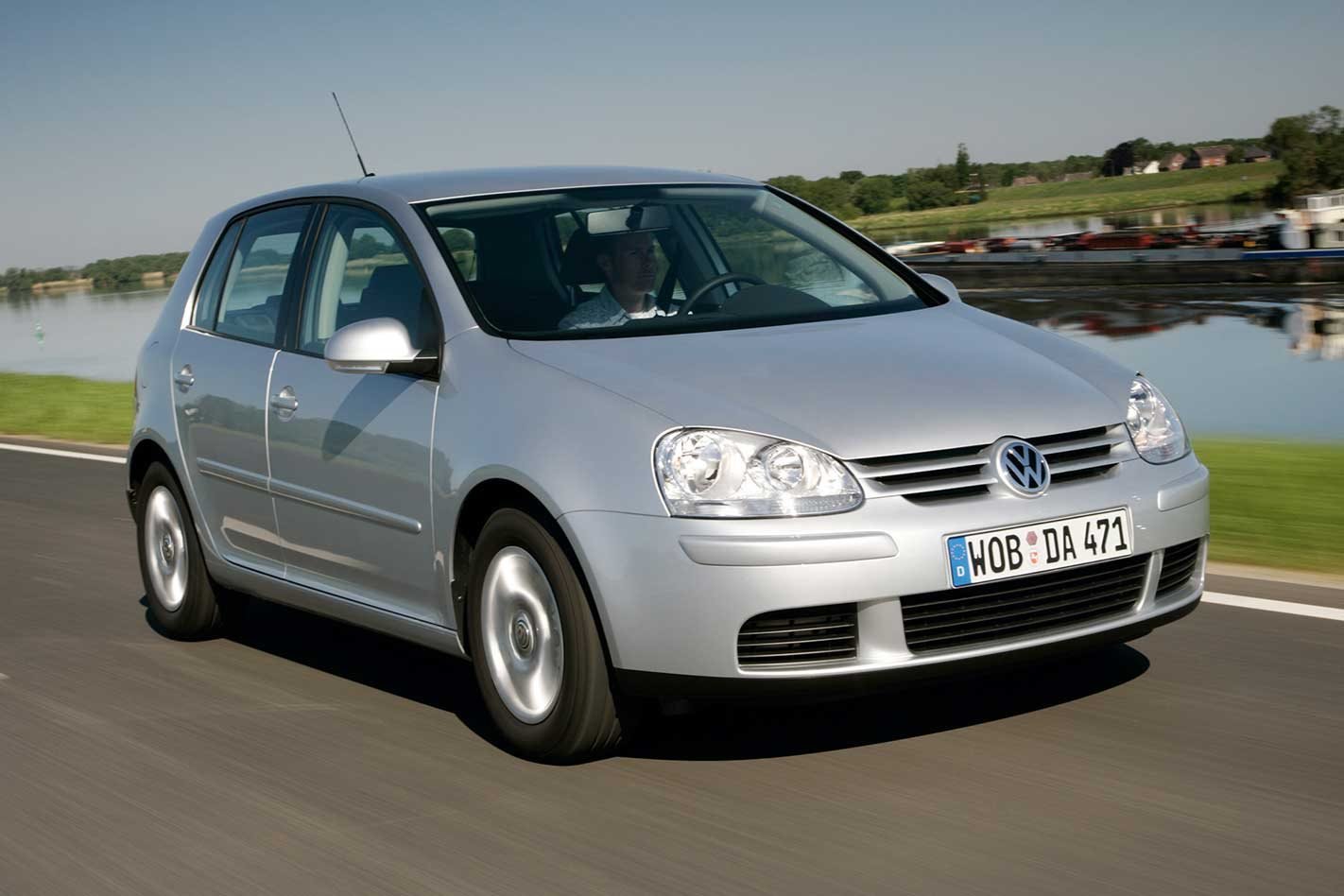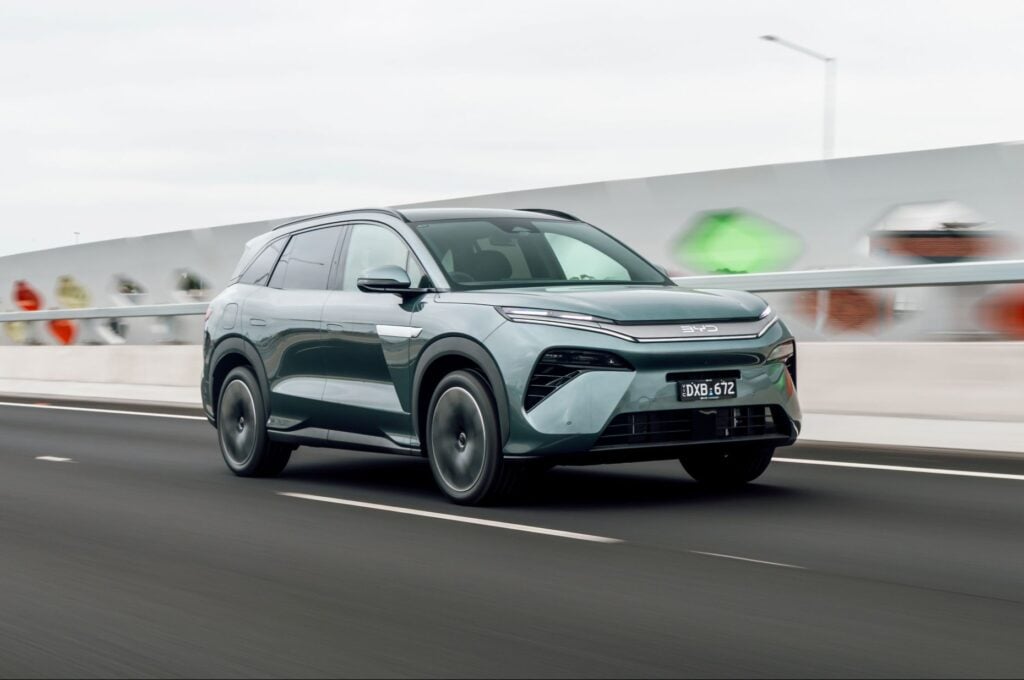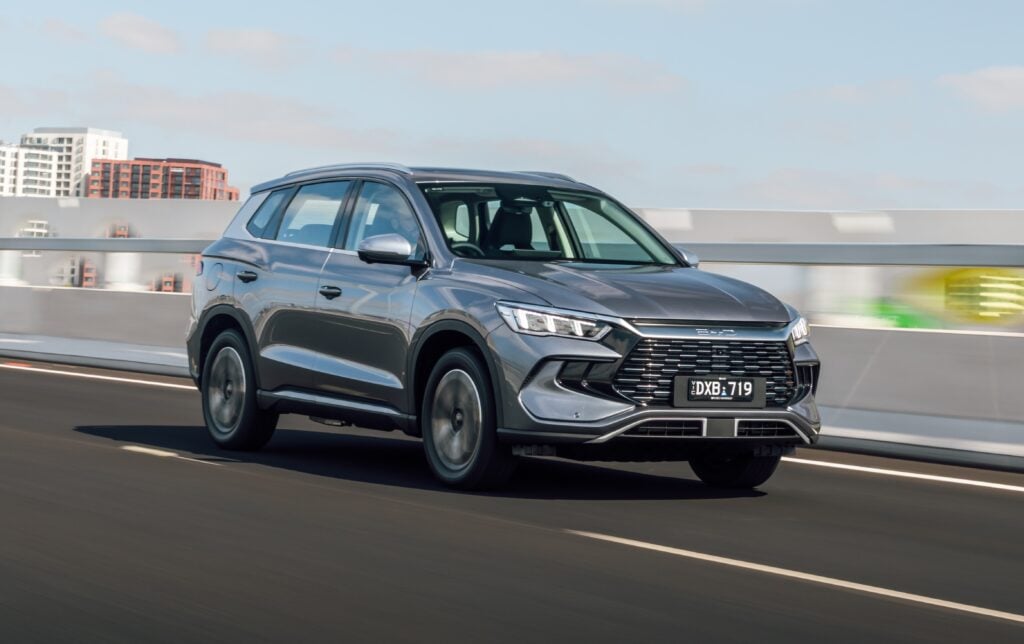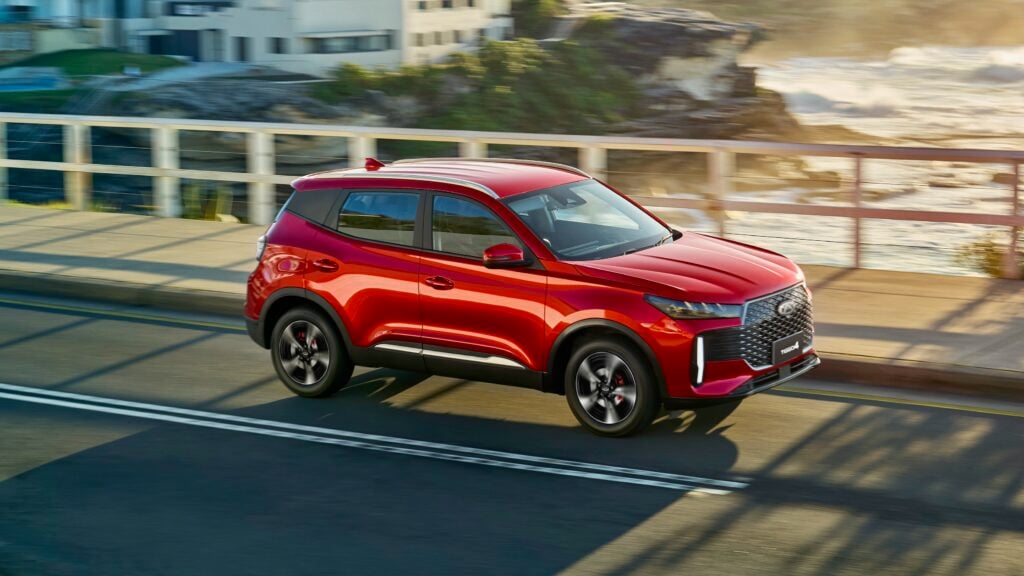Owners of current-model Golfs, at least those who don’t intend to rush out and buy the just-launched Version V, should look away now. Your car is 15 percent less dynamically stiff than the new one, its bending stiffness is 30 percent worse and, when it comes to static torsional stiffness, the new one is a massive 80 percent better than yours.
This review was originally published in MOTOR’s December 2004 issue
It’s hard to tell these terms apart, but let’s just say you might want to duck outside now and check that your old Golf hasn’t blown away, or folded in half. VW also admits that the steering on your old Golf is pretty ordinary, but says the problem has been fixed on the new one.
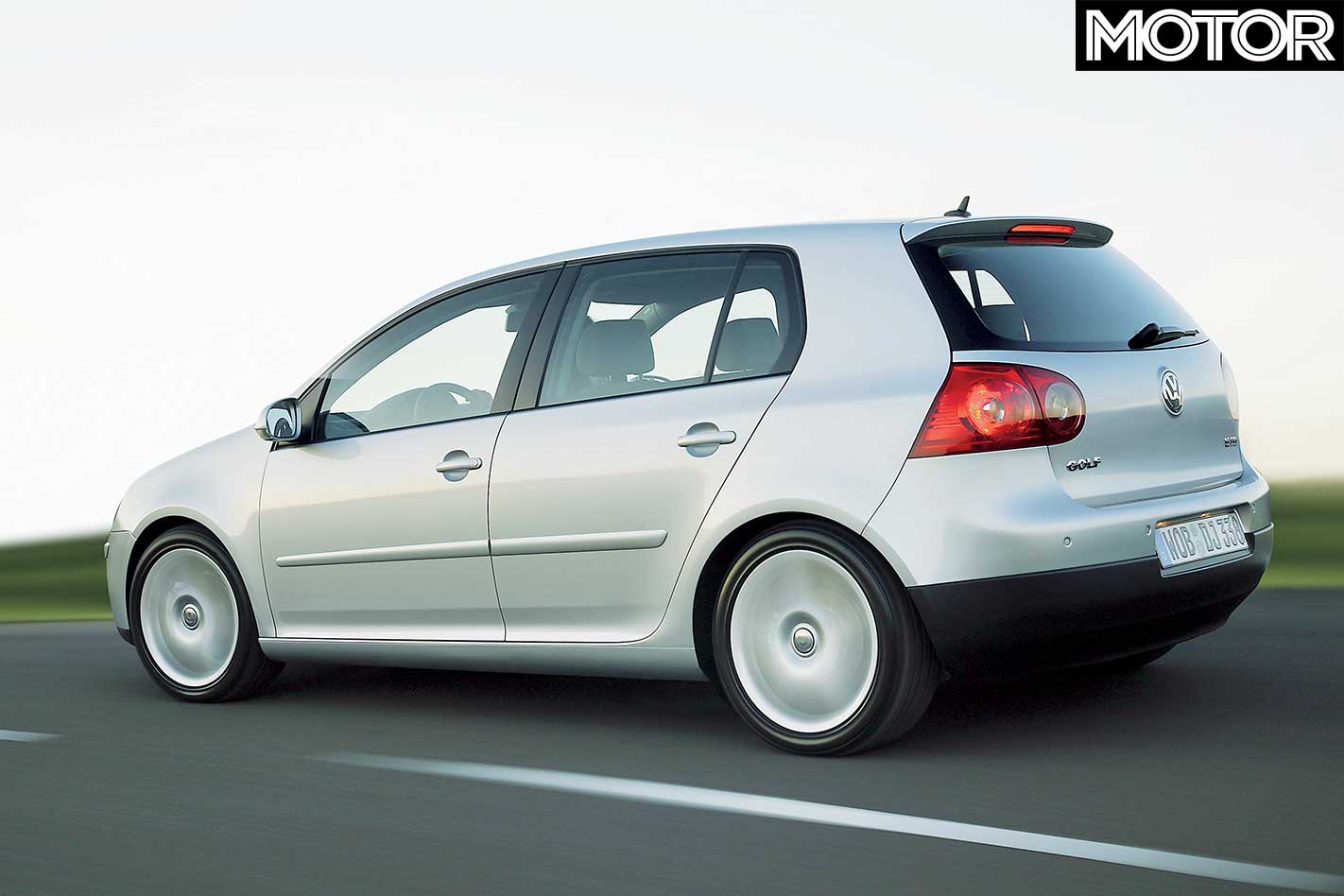
With all this in mind, we approached the new model with trepidation, fearing it might be so vault-like we would require a good safecracker to get in the door. Certainly, the new Golf feels as solid as a Turkish weight-lifter, but it’s not as lumbering or heavy as this suggests.
Spoiled only by a cheap-looking steering wheel, its slick, stylish interior exudes quality, and its ride comfort makes a mockery of many more expensive vehicles. Our first impression of the Golf’s new electromechanical power steering is that it feels mighty fine, although, sadly, the test-drive route we were led on had fewer corners than a tennis ball.
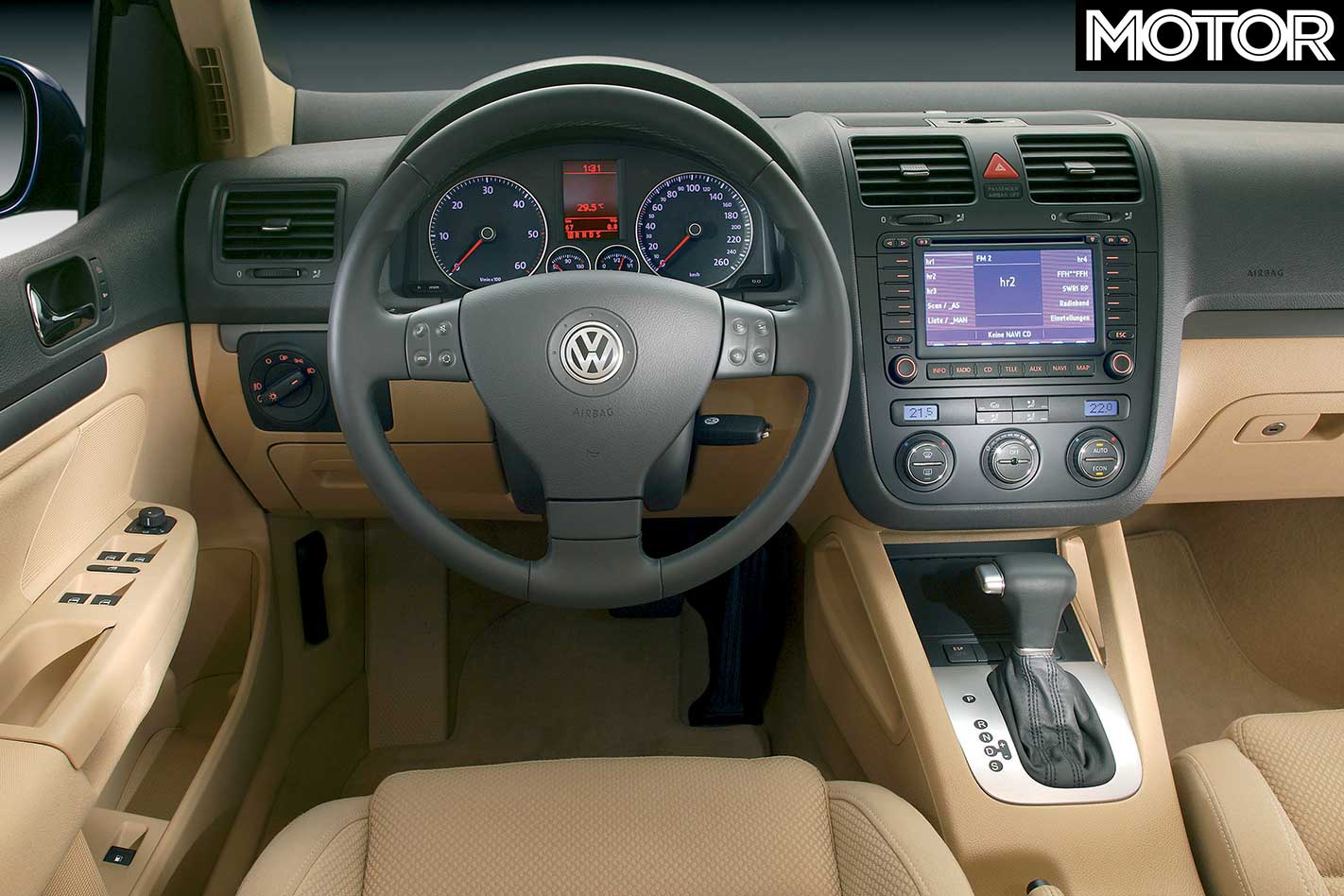
As for the engines, drivers of current Golfs will recognise the new base model’s 75kW, 1.6-litre unit, but there are three new powerplants – the 110kW 2.0-litre FSI and not one, but two diesels, a 77kW 1.9-litre and a 103kW 2.0-litre TDI. VW is betting that soaring fuel prices will send buyers scurrying for diesel variants, particularly when they read that the 1.9-litre gets over 1000km from a tank, at a miserly 5.5 litres per 100km.
Buyers will be even more tempted when they read that, much as it pains us to say it, the 2.0-litre TDI – with its 320Nm of torque, versus 200Nm in the 2.0-litre FSI – is the best of the bunch, if you can put up with the diesel clatter. Diesel models also come with the option of the impressive six-speed Direct Shift Gearbox (DSG).
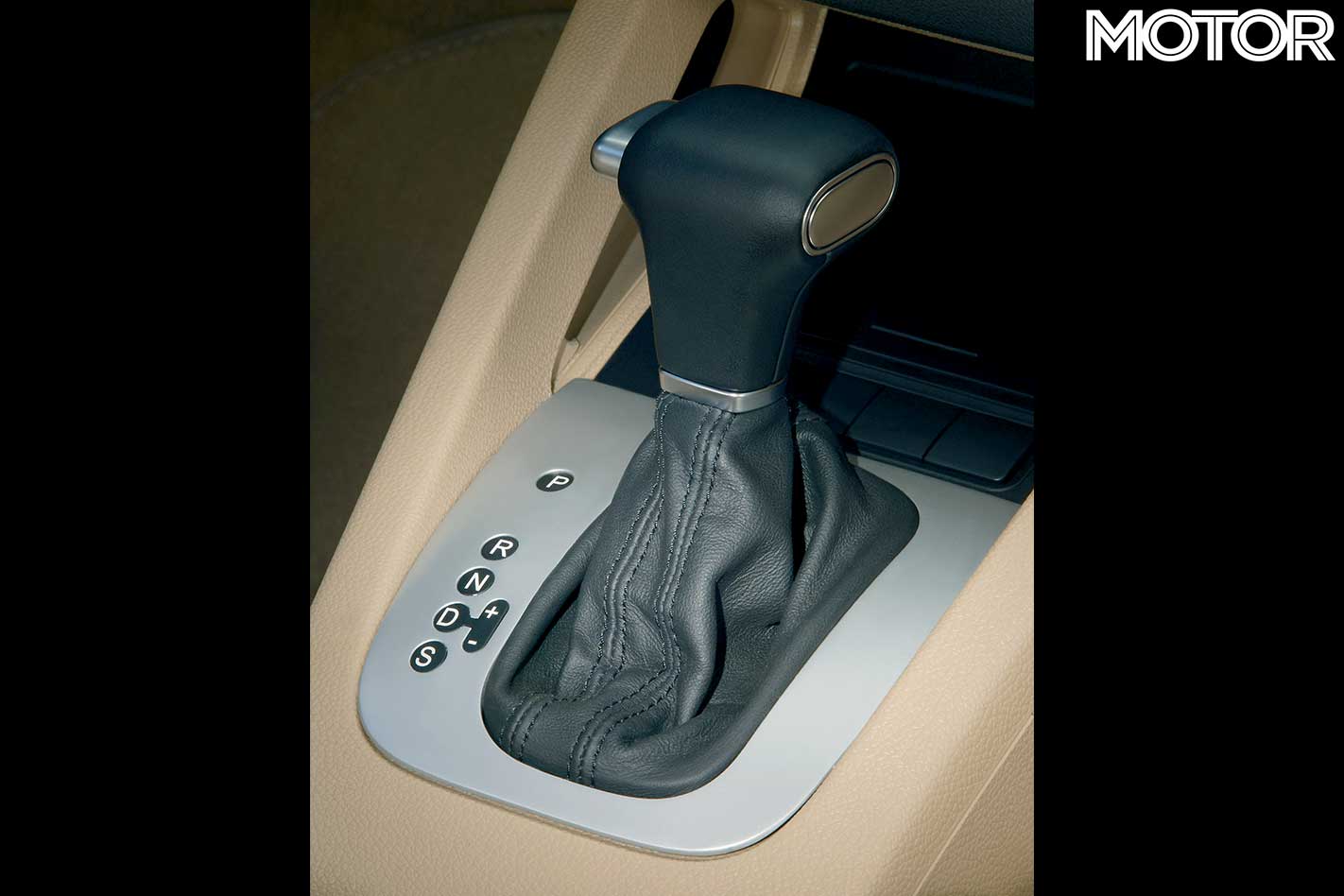
If electromechanical steering, DSG and FSI sound familiar, it’s because you read about them in stories about Audi’s A3 – sales of which are likely to be seriously damaged by the quality, and pricing, of the new Golf.
The 1.6-litre starts at $25,490 – the A3 with the same engine is $34,900. The 2.0 FSI seems to be alarmingly good value at $29,990 (a comparable A3 is $39,000), as does the same-priced 1.9-litre TDI. The range-topper, at least until the turbocharged 134kW GTi arrives next April, is the 2.0-litre TDI at $32,490.
Consider that each model comes with traction control, ABS and six airbags as standard, and the Golf looks like a mighty good buy – particularly when compared to the old one.
FAST FACTS Engine: 2.0-litre inline-4 16-valve Power: 110kW Weight: 1240kg Drive: front-wheel Price: $29,990

